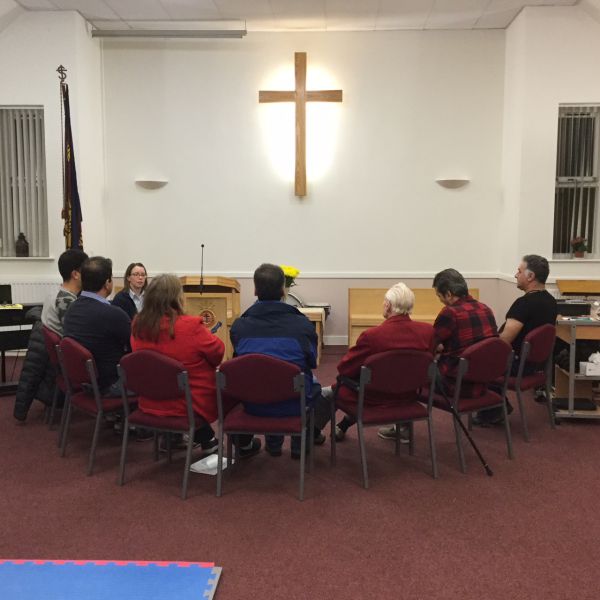By Alexandra Foden

It’s interesting to think that 12 months ago I was asked to take the role of a Refugee Resettlement Caseworker. From being young, attending school, college and University I always felt I was destined to help people live a better quality of life and make a difference, yet I never thought I would get an opportunity like this. It has been a privileged experience supporting refugee families with their resettlement in the UK after living in hardship, persecution and fear in their home country. The day the refugees arrived I greeted them at the airport and was overwhelmed with empathy and the need to help them. From that day on the families faced many challenges and I began to see them with a new perspective.

 3616 miles. 5820 kilometres.
3616 miles. 5820 kilometres. A year ago, I attended a meeting about asylum seeking in the UK and learnt that many people were being housed near me in the North-West of England by the Home Office. Individuals and families were placed in shared accommodation, most with little English language, whilst they awaited their asylum decisions.
A year ago, I attended a meeting about asylum seeking in the UK and learnt that many people were being housed near me in the North-West of England by the Home Office. Individuals and families were placed in shared accommodation, most with little English language, whilst they awaited their asylum decisions.
 In Thurday’s guest-post, Commissioner Birgitte Brekke-Clifton said
In Thurday’s guest-post, Commissioner Birgitte Brekke-Clifton said  It gives us glimpses of ‘the heroic stories of the past’: the early Salvation Army – ‘a revolutionary movement seeking to turn the world upside down – an Army born for justice-seeking’. In doing so, it gives us a timely reminder of who we were raised up to be and what we were raised up to do.
It gives us glimpses of ‘the heroic stories of the past’: the early Salvation Army – ‘a revolutionary movement seeking to turn the world upside down – an Army born for justice-seeking’. In doing so, it gives us a timely reminder of who we were raised up to be and what we were raised up to do. For example, if you’re concerned about how somebody’s Bible study is going, you also need to be concerned about whether they are being paid a fair wage in order to put food on the table for their family, or whether the children have enough space to do their homework, or whether the whole family feels safe on their way to work or school. While the earthly and spiritual might be formally distinct, the two are joined together so tightly that neither can survive separation. It is therefore implicit that a visit should lead to action.
For example, if you’re concerned about how somebody’s Bible study is going, you also need to be concerned about whether they are being paid a fair wage in order to put food on the table for their family, or whether the children have enough space to do their homework, or whether the whole family feels safe on their way to work or school. While the earthly and spiritual might be formally distinct, the two are joined together so tightly that neither can survive separation. It is therefore implicit that a visit should lead to action.